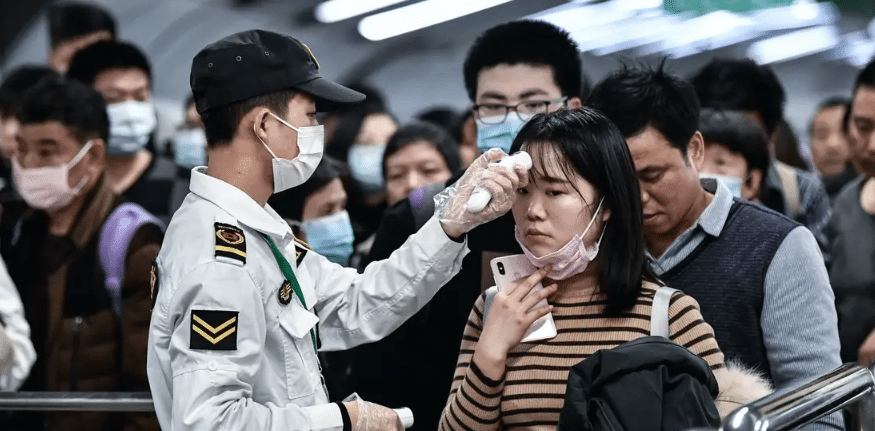Dr. Amjad Al-Khouli, an epidemiological consultant at the WHO Regional Office for the Eastern Mediterranean, confirmed that the organization recommends health authorities to work with the travel, transportation and tourism sectors to provide travelers with the information necessary to generally reduce the risk of acute respiratory infection, through health clinics for travelers, travel agencies and operators Transportation and entry points.
Dr. Amjad Al-Khouli explained to Al-Arabiya.net how the countries of the world can confront this virus, respond to it, the preventive measures that are being followed, combat infection in health centers, maintain appropriate supplies and communicate with the public about this new virus.
Based on the information currently available, the organization does not recommend any travel or trade restrictions. Countries are recommended to continue to enhance their preparedness for health emergencies in line with the 2005 International Health Regulations.
A topic that interests you: Algerian Energy Minister Mohamed Arab, head of the current OPEC session, said on Monday that he expects the impact of a coronary virus outbreak … OPEC reassures the markets: Corona’s impact on oil is weak OPEC reassures the markets: Corona’s impact on oil is a weak energy
The epidemiology consultant explained that, in the Eastern Mediterranean region, the Juvenile Corona Virus Support Team has been formed in the WHO Regional Office to coordinate technical support, define national capacities, review and answer technical inquiries from the Member States, and perform other important functions. Health supplies are being purchased and pre-positioned at the WHO Regional Logistics Supply Center in Dubai with the aim of distributing them as necessary, and funding has been secured to send laboratory samples to three global reference laboratories for testing.
It also confirmed that no cases were reported in the countries of the Eastern Mediterranean Region. WHO coordinates with countries in the region to further enhance preparedness activities in line with the 2005 International Health Regulations, and has issued technical guidance on how to do so.
Dr. Amjad Al-Khouli pointed out some of the usual recommendations to the public that aim to reduce exposure to and transmission of diseases, including personal hygiene, respiratory hygiene, and safe food practices, which are:
1_ Wash hands with soap and water or rub your hands with an alcohol cleanser.
2_ Cover your mouth and nose with a medical mask, napkin, sleeves, or bend your elbow when you cough or sneeze.
3_ Avoid contact with anyone with symptoms of a cold or influenza-like without prevention and seek medical care in the event of a fever, cough and difficulty breathing.
4_ When visiting open markets, avoid direct contact without protection for live animals and surfaces that animals come into contact with.
5_ Cooking well, especially meat.
Treatment depends on clinical symptoms
The epidemiologist consultant confirmed that so far there are no effective treatments approved by the World Health Organization for this type of emerging coronavirus, and the treatment depends on clinical symptoms.
Treatments are also being investigated, through observational and clinical trials, for patients with coronaviruses that cause a respiratory syndrome in the Middle East.
Dr. Amjad Al-Khouli added that following all the measures recommended by the World Health Organization in dealing with animals, animal products and excreta and mixing with patients reduces the chances of transmission of the virus and then limits the chances of a pandemic. However, the transmission of the epidemic cannot be totally prevented and the possibility of transmission of the epidemic remains, but on a smaller and limited scale.
It is now clear, according to the latest information, that there is at least some form of transmission between humans, but it is not clear to what extent. This information reinforces infections between NYGoodHealth health care workers and family members. This information is also consistent with experiences with other respiratory diseases, particularly with other outbreaks of the Coronavirus.
The virus has mutated
Dr. Amjad Al-Khouli explained that there were previous expectations of the virus mutating, that there are always previous expectations of virus mutations based on the experiences gained throughout the history of dealing with viruses, and we see such mutations in several viruses, the most famous of which are influenza, Corona and others. But it is impossible to determine how, when and where the mutation occurs, so the organization always focuses on the importance of preparedness, preparedness, and completion of infrastructure in different countries to rapidly respond and respond to any outbreak of viral mutation.
Dr. Amjad Al-Khouli indicated that until now the virus has spread to China only and limited cases have been discovered in other countries, most of which are among people who have a previous journey to China.
These are injuries that individuals have moved abroad in many countries, and with increased vigilance, we expect new warnings and situations to emerge in other countries.
No cases have been reported in the Eastern Mediterranean Region, and the WHO Regional Office continues to work with countries to expand preparedness and response measures, and to monitor the rapidly evolving situation to reduce the risk of new arrivals of the Coronavirus.






